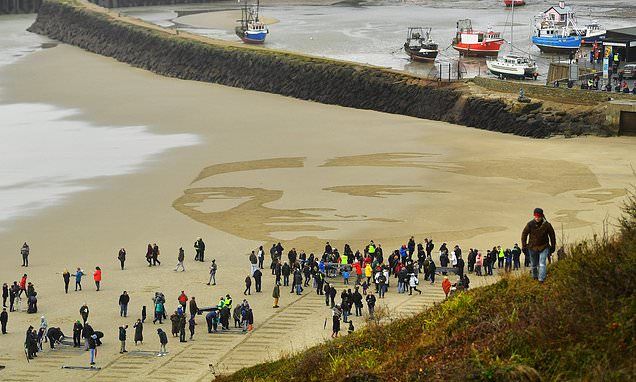Armistice Day - a Hundred Years On
It has been particularly poignant to mark Armistice Day this year, on the centenary of the end of the Great War of 1914-18. Many of us were able to keep that moment of silence marking the eleventh hour of the eleventh day of the eleventh month in 1918 that that devastating conflict came to an end. At Belmont and on our parishes we shared in this in this sombre remembrance.
The Great War brought with it 9.7 million military deaths and 10 million civilian deaths. It was called “the war to end all wars” yet we know it was just the beginning of a century of slaughter that left an estimated 110 million people dead in combat, without counting the quiet millions killed by the poverty, plague and famine that came in its wake.
On 10th November The Times ran an obituary for someone who died in that War, whose death had received the briefest of mentions at the time. It was for the soldier and poet Wilfred Owen. A hundred years too late, but never too late to remember heroic sacrifice.
Owen was killed in action at the age of 25 just a week before the war ended. His mother received the telegram with the news on Armistice Day, as the church bells were ringing out to celebrate the peace. It makes his poem Anthem for Doomed Youth all the more poignant. It begins by asking “What passing-bells for those who die as cattle? Only the monstrous anger of the guns.” And in Dulce et Decorum Est after recounting in graphic details the sufferings of the front he warns those who pursue war:
My friend, you would not tell with such high zest,
To children ardent for some desperate glory,
The old Lie; Dulce et Decorum est
Pro patria mori.
The old lie that war can be sweet and fitting. Wilfred Owen, who was from the nearby border town of Oswestry, had experienced at first hand the pain inflicted by war and knew what he was writing about.
Our Sunday Mass readings had contrasted the aloofness of the scribes who liked to be greeted obsequiously in the market-place with that of the poor widow who placed her mite, her two small coins, in the treasury offering. Perhaps Owen would have appreciated such a contrast as he did between those encouraging the prosecution of war and the humble response of the poor foot-soldier.
The scribes are mentioned in his poems, At Calvary near Ancre (Ancre was a tributary of the Somme and a scene of two notable battles in 1916) where he links the sacrifice on the battlefield with the sacrifice of Christ on the Cross. It goes on:
T he scribes on all the people shove
And bawl allegiance to the state,
But they who love the greater love
Lay down their life; they do not hate.
Owen knew that war was not glorious and many of those who gave their lives did so in a Christ-like way of love for their fellow men and women and not out of hatred. He railed against those who wanted to stir jingoism or a nationalism. And yet today in 2019 populism and nationalism is on the rise in so many places. We should be on our guard.
As the poet Longfellow put it: “If we could read the secret history of our enemies, we should find in each man's life sorrow and suffering enough to disarm any hostility.” We cannot forget the suffering on both sides of conflict. For the Christian, war is a result of sin, a consequence of the fallen world. War is never inevitable.
Our Sunday readings were in some ways very appropriate for the light they shed on the sacrifice of war
In Mark’s Gospel, Chapter 12 , the poor widow represents the selflessness of those who give of themselves, without counting the cost. “From the little she had she put in everything she possessed” Like all those who sacrificed so much for the good of others in war: who gave even their own lives that we might enjoy freedom, peace and security.
The Letter to the Hebrews tells the story of another sacrifice made once and for all: Christ the High Priest, who offered his own body for the folly of human sin, the folly of human war, the folly of human hatred.
This folly is brought out in a remark of Carl Sagan’s: “The Earth is a very small stage in a vast cosmic arena. Think of the rivers of blood spilled by all those generals and emperors so that, in glory and triumph, they could become the momentary masters of a fraction of a dot.”
Those who visit the British and Commonwealth and similar war cemeteries and see the rows and rows of white headstones are often reduced to silence especially when they see the ages of those who died. It is hard not to shed a tear at the Canadian Major John McCrae’s poem In Flander’s Fields , written on a scrap of paper in May 1915, during the Second Battle of Ypres.
We are the Dead. Short days ago
We lived, felt dawn, saw sunset glow,
Loved, and were loved, and now we lie
In Flanders fields.











